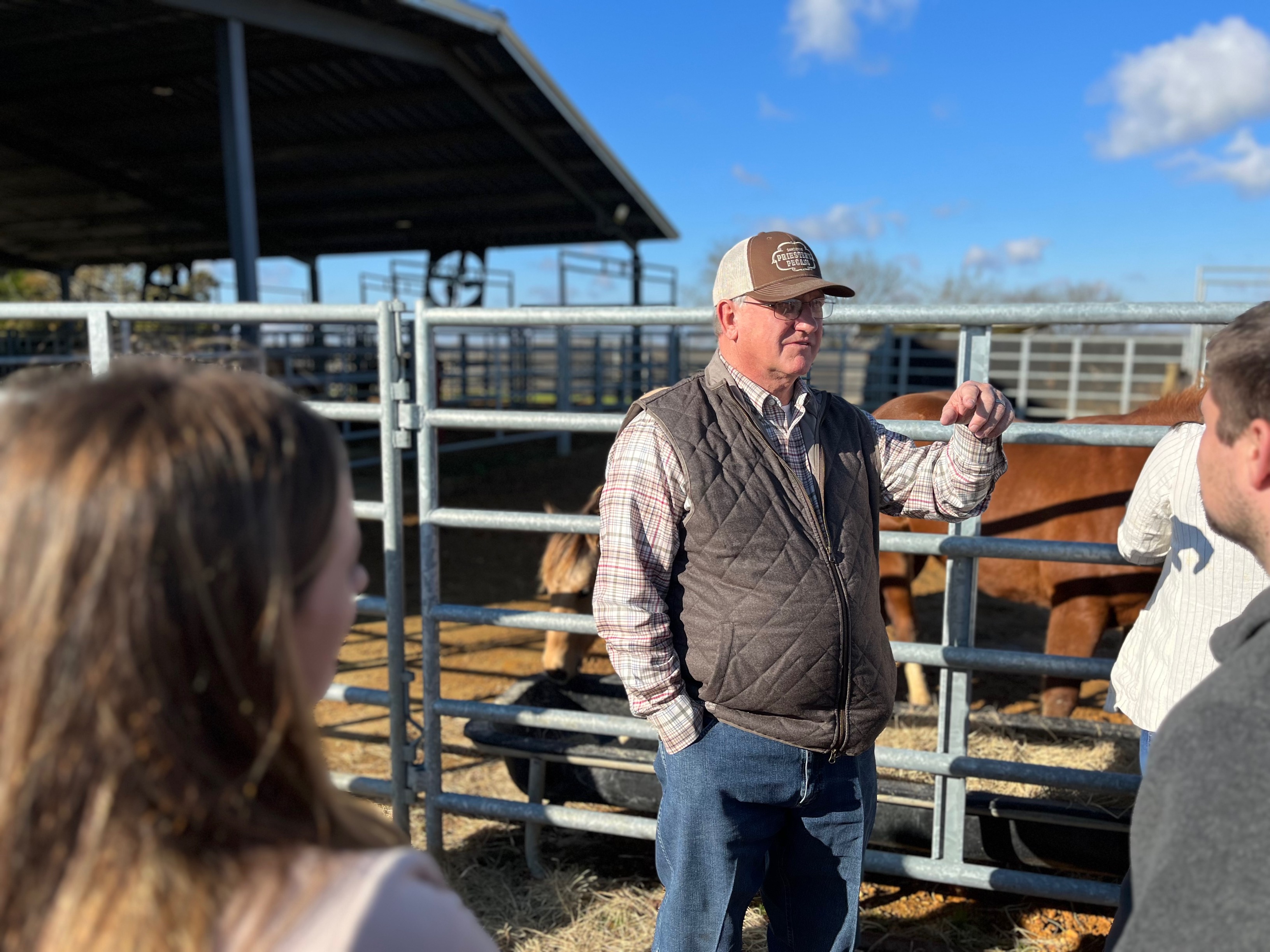Talk agriculture in Michigan to just about anyone who has spent much time around the industry and you’ll almost certainly hear one term mentioned often: Diversity.
Diversity is, in fact, the backing of Michigan’s agricultural fabric. But is it a uniquely Michigan experience? In some ways, yes. In others? Perhaps not as much as you might think.
“We want to be as diverse as we can be without going too far from what it is that makes us who we are,” said Alabama Farmer Tabor Ellis of Triple E Farm. “We want to attack this deal from every angle that we can.”
That deal? Moving forward a family farm that has, thus far, spanned six generations. It’s a task that those in audience on this sunny, warm-for-Michiganders-but-not-for-Alabamans morning can relate to.
That audience is the 2022-23 ProFILE class, a cadre of 14 Young Farmers from across the state who have traveled south to learn leadership skills and lessons from agricultural operations in Alabama and Georgia. While the ProFILE program is a full-year intensive, this particular road-tripping segment lasts just a week. And the agenda is jam-packed.
“I got involved with ProFILE because I wanted to connect with others and to learn leadership lessons in a different way,” said participant Chad Geoit.
“It’s been more than I really expected, and I think what we’ve already seen today, even though it’s our first day of the trip, kind of points that out. We think about diversity in agriculture in Michigan a lot. Well, to see how that’s something the farmers in Alabama think about too is just something that you can build from moving forward.”
Tabor Ellis is the youngest of three sons of Thomas Ellis, both of whom greeted the ProFILE crew’s bus as it rolled to a stop at the roadside gate of the Triple E, a farm that earned the coveted Farm of Distinction Honor for the state in 2020.

The Triple E covers roughly 1,000 acres of owned or rented land and, you guessed it, thrives due to its diversity.
“I think it’s important not to latch onto one thing,” said Tabor Ellis while talking to the ProFILE class. “We want to make smart decisions, focus on quality and try to stay current while also thinking about what’s ahead.”
The Triple E runs about 1,000 head of stocker calves along with a broiler chicken operation of about 400,000 birds. A newer focus and passion is horses that are produced for athletic performance (barrel racing, team roping, etc) and working cattle.
And, oh yeah, they also “dabble” a bit in pecans…
In fact, the Ellis family owns and operates Priester’s Pecans, an operation that processes around two million pounds of the nuts each year.
“We aren’t pecan growers,” explained second-oldest son, Stinson Ellis. “We are buying in-shell pecans and then handling the cracking and shelling. From there, we can do a lot with those pecans including our own line of high-end candies and treats.”
If you’re into cool machinery, mechanical wizardry and efficiency of processes (and, really, what farmer isn’t?), the pecan (officially pronounced as ‘peh-con’) processing operation is impressive indeed. After cracking, the nuts are sorted for size and quality using zero squirrels but a whole lot of pipes, conveyors, vibrating jigs and mechanical methods. Some are sent to be packaged for baking. Others are used in-house for candies or roasted and salted. A word about that roasting. “Roasted” pecans aren’t, in fact, roasted at all. They’re fried… the South is a special place indeed.
From sourcing to food safety to labor to packaging to distribution to a retail storefront, the Priester’s Pecans tour provided a full-picture look at a uniquely southern commodity with lessons and similarities not unlike those producing specialty crops here in Michigan.
Perhaps just as important, the ProFILE class got a look at the role other American Farm Bureau Federation affiliates play in other states. The Alabama Farmers Federation (the Alabama equivalent of Michigan Farm Bureau) helped coordinate the trip and at every stop along the way, local farmers sang the praises of the services and leadership provided by the group.
“At the end of the day, we all love agriculture,” Thomas Ellis said. “We all know what it’s like to care for the land, care for the animals, put a lot of faith into things we can’t control. We may have different end products, but we have the same challenges.”
By the time you read this, the sweet smells of pecans will be behind them and the ProFILE tour bus will be rolling again… this team heading a bit further south to check out a sweet potato operation before overnighting near Gulf Shores, Alabama.
On Tuesday morning, it’s back on the road with stops at the Port of Mobile and an oyster shelling facility before starting the swing into Georgia.
Share Story
Article Tags


